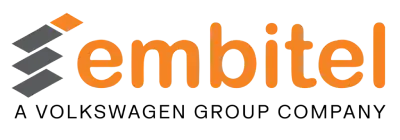With the dawn of self-driving car, the need for safe navigation and avoidance of obstacles has been the number one priority for the automotive OEMs.
The Light Detection And Ranging (LiDAR) technology has emerged as the backbone of the vision of autonomous vehicles by rendering 3D mapping of the vehicle environment.
Before we share with you the exciting stories of some of the globally acclaimed LiDAR Sensor companies, let’s first understand how LiDAR Sensor works!
What is LiDAR and how it works?
The Light Detection And Ranging sensors are detection and survey systems to estimate the proximity of a target object.
The LiDAR sensors have four main constituent components:
- Lasers
- Scanners
- Photodetector receivers
- GPS positioning/navigation systems.
An optical pulse is generated by the laser which is radiated and transmitted towards the target object.
Depending on the time taken by the light pulse to bounce back and reach the receiver, the distance of the target object is measured (using the speed of light).
LIDAR sensors have a very niche market. It is a cutting-edge technology and R&D intensive industry.
There are a number of exciting start-ups and large organizations in the Automotive industry who are working on the automotive LiDAR sensors based self-driving vehicles and ADAS systems.
In this article, we will be talking about such 8 globally acclaimed Vendors who have raised the bar in this field through their pioneering work in automotive LiDAR sensors.
1) Velodyne
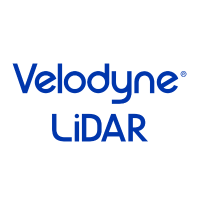 Velodyne is a US based group of three subsidiary companies, Velodyne Acoustics, Velodyne Marine and Velodyne LiDAR.
Velodyne is a US based group of three subsidiary companies, Velodyne Acoustics, Velodyne Marine and Velodyne LiDAR.
Co-Founded by David and Bruce Hall in 1983, Velodyne is situated in the Silicon Valley.
It started as an audio company and has ever since released a wide range of audio products such as headphones, woofers, in-ear headphones and much more.
They discovered their niche for LiDAR sensor Technology while enrolling for a competition to design an autonomous vehicle prototype based on stereovision technology,
This event was sponsored by the Defense Advanced Research Projects Agency (DARPA).
Velodyne has embarked the automotive market as the leading manufacturer of advanced LiDAR sensors with a 360-degree environmental view and 3D mapping features.
They have a wide clientele proliferating from Google’s Waymo to Ford Motors and so on.
Their exemplary product VPL-16 has also been recognized with the North American Automotive ADAS Sensors Product Leadership award.
(source- Wikipedia and Velodyne website)
2) LeddarTech
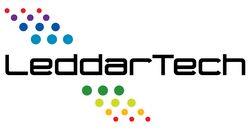 Established in 2007 LeddarTech is a leading innovator in the market for laser detection and ranging technology sensors. It is an offshoot of Canada’s leading optics and photonic research institute (INO).
Established in 2007 LeddarTech is a leading innovator in the market for laser detection and ranging technology sensors. It is an offshoot of Canada’s leading optics and photonic research institute (INO).
Their products range from LeddarCore ICs, M16 Sensor module to D-tech traffic sensor.
Many reputed automotive OEMs have incorporated LeddarCore IC to develop LiDAR solutions with customized optical configurations.
LeddarTech is complete sensor-module is a definite go-to automotive LiDAR sensor solution for various industrial integration and automotive applications.
They are recognized globally for their cost effective LiDAR technology solutions.
They have been honored with various prestigious awards like Best in Biz International Awards in 2014 for the category of ‘Best new product of the year’ and North American Affordable ADAS product innovation award in 2016.
(Source- LeddarTech website)
3) Innoviz
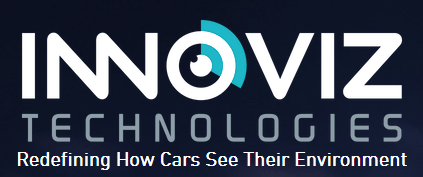 The Israel-based startup is a prominent LiDAR sensor technology solution provider.
The Israel-based startup is a prominent LiDAR sensor technology solution provider.
Their primary mission is to act as a contributor of LiDAR solution (which is a primary module for the autonomous vehicles) to eminent automotive OEMs.
Since its inception in 2016, the co-founder and CEO Omar Keilaf has elucidated the company’s vision as working towards providing cost and time effective LiDAR sensor based solution.
Recently, Magna which works with autonomous driving vehicles has collaborated with Innoviz to utilize its ideal product high definition solid-state LiDAR (HD-SSL) sensors to provide a complete sensor-solution package for self-driving vehicles to the automotive manufacturers.
Innoviz has have been selected from among 300 companies to participate in Startup Autobahn 2017 which an innovation platform for the future mobility platform.
(Source- Innoviz Website)
4) Trilumina
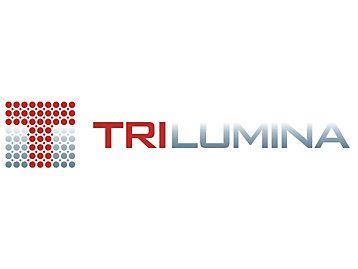 The USA based automotive company was founded in 2010. They are recognized for providing laser-based low-cost solutions on LiDAR sensors for automotive applications.
The USA based automotive company was founded in 2010. They are recognized for providing laser-based low-cost solutions on LiDAR sensors for automotive applications.
Trilumina is funded by Cottonwood Technology Fund (CTF) and Stage 1 Ventures which are both early-stage capital investment companies providing funding opportunities to entrepreneurs which strong commercial potential.
They are also funded by an equity fund by Sun Mountain Capitals.
Trilumina’s Driver Monitoring System (DMS) is a high-end automotive product. It provides the illumination option for the driver monitoring system in an optimized way.
It uses Laser instead of the conventional LEDs and significantly reduces the power consumption by illuminating only what is important based on real-time inputs from the vehicle.
With the appointment of affluent industrial entrepreneur Brian Wong as new President and CEO, Trilumina is hoping to make new advancements towards groundbreaking technological advent in automotive industries.
(Source – Trilumina Website)
5) TetraVue
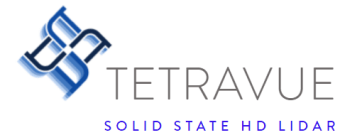 It was founded in the USA in the year 2008 by Paul Banks. His vision was to commercialize 3D imaging for industrial application.
It was founded in the USA in the year 2008 by Paul Banks. His vision was to commercialize 3D imaging for industrial application.
TetraVue have retained investors like Robert Bosch Venture Capital, Nautilus Venture Partners, Samsung Catalyst Fund and Foxconn.
The TetraVue solid state HD LiDAR is a long ranged, high resolution and low power consuming, a gilt-edged product which is designed to perform optimally in a wide area of industrial, automotive and even augmented reality applications such as gaming and filming.
These LiDAR sensors are based on high definition 3D images for a long range in less power.
With their advent of 3D LiDAR sensor technology for optimizing optical resolution and environment identification by the self-driving vehicles, they have recently raised 10 million dollars through venture capital funds led by Robert Bosch Venture Capital and Nautilus Venture Partners.
(Source- TetrVue website)
6) Luminar
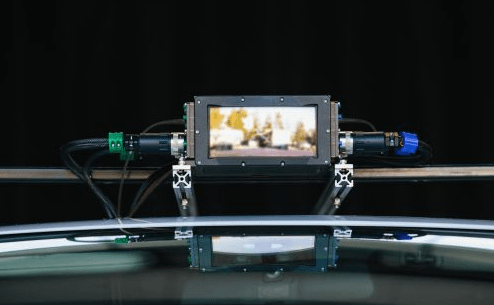 Luminar was founded by Austin Russell in 2012 with a vision to innovate a new type of LiDAR for the autonomous vehicles.
Luminar was founded by Austin Russell in 2012 with a vision to innovate a new type of LiDAR for the autonomous vehicles.
Russell’s passion for creating advanced LiDAR sensor was fueled by his Theil Fellowship at an age of 18. He founded Luminar when he turned 22.
Their recently launched product has created a ripple in the marketplace of automotive LiDAR sensor manufacturers. They are rumored to be competing against the companies like Velodyne who have clients such as Ford and Volkswagen.
They have a uniquely innovated product where everything from creating its own chip to circuit design is done by the company.
Their product claims to have longer range and higher resolution which give the vehicle an optimal reaction time to avoid accidents.
Russell is specific to keep the price and profit of the product as a matter of secrecy.
“With the price going down, performance will go down. We are focused on building the best performing technology”, suggested Russell, indicating that this technology does not come easy and cheap.
Luminar is being funded by Venture Capitalists like GVA, Canvas Venture, 1517 fund and a venture firm backed by Theil. Jason Eichenholz’s company Open photonics has been taken over by Luminar and Jason is now the co-founder & CTO of Luminar.
(Source: Luminar Website and Business Insider Article)
7) Princeton Lightwave:
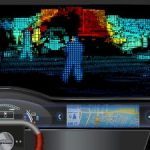
Princeton Lightwave Inc., based out of New Jersey, United States, are the pioneers of the Geiger-mode LiDAR technology. This technology facilitates detection and real-time digital processing of photons.
Princeton Lightwave has emerged as a reputed and leading supplier of a range of products that work on Geiger-mode LiDAR technology like-
- Their GeigerCruizer automotive LiDARs – delivering autonomous navigation, 3-D imaging and secure encrypted communication
- Geiger-mode cameras used in defense, commercial mapping, and free space optical communication.
In fact, the speed, precision, and accuracy of these cameras to capture highest resolution images of long range objects, highly surpass that of the Infrared technology based cameras
One of the driving forces and pillars of success of Princeton Lightwave was their Physics Nobel Prize (2000) winning cofounder Mr. Dmitri Z. Garbuzov
His achievements include invention of the first room-temperature and continuous-wave based high powered diode lasers.
(Source: Princeton Lightwave Website)
8)Neptec Technologies:
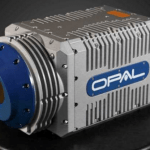
Neptec was founded in September 2011 by Neptec Design Group limited. The company has developed a niche in building sensors, camera systems, and robotic systems for aerospace applications.
Neptec successfully developed the first of its kind Advanced Space Vision System prototype for NASA for their International Space station (ISS). Ever since then, Neptec has worked as a contractor for NASA.
Neptec’s OPAL is 3D LiDAR sensor for self-driving cars and other industrial implementation.
OPAL works on the latest innovations in both semiconductor based laser optics and intelligent 3D processing. The OPAL delivers a large number of raw 3D data points and has obscurant penetration ability.
The OPAL has been integrated with various applications across industries like aerospace, marine, construction, oil & minerals and much more.
(Source: Neptec Website)
What are LiDAR Sensor companies chasing?
According to a study done by Markets and Markets, the solid-state LiDAR market is expected to grow at the highest rate in 2017-2022. It is estimated that the market value for automotive LiDAR sensor is expected to be USD 5,204.8 Million by 2022.
And here lies the answer, the automotive and LiDAR sensor companies are chasing this nascent market with more than generous potential.
This market growth is being propelled by the ever growing demand of automotive OEMs’ for self-driving cars and ADAS applications.
Additionally, the steadily increasing end-consumer inclination towards ADAS applications, especially in the developed markets, is being considered as a testimony of robust future ROI on such large-scale investments.
